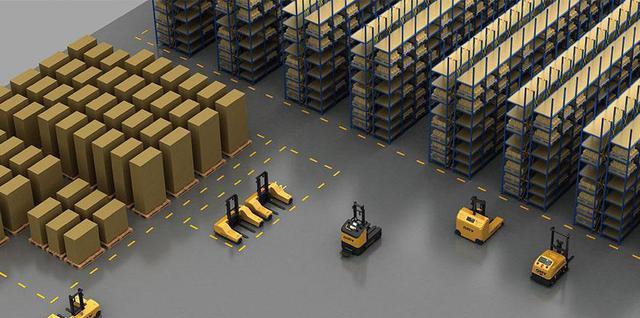The robot can get 1 day of work for the employee in 2 hours. How long does it take for the intelligent logistics to be fully popularized?
In the past, the logistics field was fighting for speed and fighting services. Today's logistics companies are also fighting for "wisdom." Through artificial intelligence, Internet of Things, 5G and other technologies to promote logistics services from warehouse, transportation, distribution stations and other multi-dimensional upgrades. According to the current situation, it is not far from “sweat logistics” to “smart logistics”.

In recent years, as the demographic dividend has gradually disappeared, the logistics industry relying on manpower is striving to shift from labor-intensive to technology-intensive, from traditional to intelligent logistics. Traditional logistics relies mainly on manpower. It relies on manpower in everything from order placement to delivery, warehousing, and distribution. It can't keep up with the rhythm under the situation of reducing operating costs. The use of intelligent hardware devices on a large scale and the gradual replacement of humans in multiple links has become a trend. At present, the logistics hardware equipment of Jingdong, Ali and other logistics giants are in the process of intelligence.
Taking rookie logistics as an example, last year's double eleven, in the rookie "future park", nearly 30,000 square meters of the library area, nearly 700 intelligent storage robots each perform their duties, forming a busy intelligent transportation and working system, All the business processes of the package production are connected in series. Behind this is the smart storage robot supplier quick warehouse and rookie together for robot cluster scheduling. Different from manpower, warehousing robots are controlled by “big data + artificial intelligence”, plus their own hardware devices, which can realize the advantages of identifying items, path planning, priority sending, and uninterrupted work.
Of course, Jingdong warehousing "Asia No. 1" performance is not to be underestimated. The past 10 employees, working 8 hours a day, can move 10,000-15,000 pieces of full-box goods. Now, Jingdong unmanned robots can complete the workload of ordinary employees in one day in two hours. Smart logistics is far more than smart warehousing, intelligent robots, unmanned vehicles, drones midway transport, unmanned delivery vehicles, smart express cabinets, etc. to solve the last mile of technology. Compared with the intelligent warehousing of logistics forward travel, mid-stream and downstream technologies such as drones and unmanned vehicles are being tested.
At present, smart logistics is only tested in closed areas, and logistics warehousing and intelligent delivery containers have been applied. Smart logistics is a process of continuous growth. Taking European smart logistics as an example, according to an estimate, for every 10% to 30% increase in the efficiency of the EU logistics industry, it will save the European logistics industry a cost of 100-300 billion euros. Formally so, smart logistics will be optimistic about the major technology companies. A few days ago, the Ministry of Science and Technology announced the latest list of national artificial intelligence open innovation platforms, and proposed Jingdong, represented by the intelligent supply chain.
Faster and better service users, constantly compressing logistics costs, smart logistics will inevitably replace traditional logistics to become a popular trend. It just completely forms a "closed loop" of smart logistics, and it takes time to wait.
Reprinted from the network


